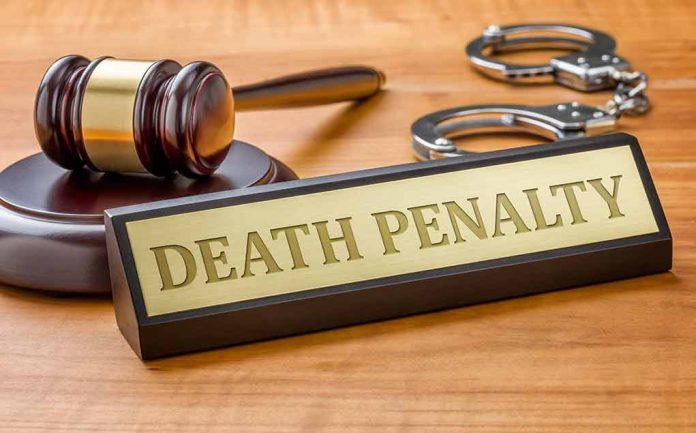
Judge Steven Hippler rules that Bryan Kohberger, accused of killing four University of Idaho students, could face the death penalty if convicted, igniting a nationwide debate on capital punishment.
At a Glance
- Judge Hippler rejected defense arguments to remove the death penalty as an option.
- Kohberger is charged with four counts of first-degree murder and one count of burglary.
- The trial is set to begin next August and may last up to three months.
- Evidence includes DNA on a knife sheath, surveillance videos, and cellphone data.
Judge Upholds Death Penalty Option in Kohberger Case
In a significant development in the Bryan Kohberger trial, Judge Steven Hippler has ruled that the death penalty remains a potential sentence if Kohberger is convicted of the murders of four University of Idaho students. This decision comes despite fervent objections from Kohberger’s defense team, who argued that capital punishment is outdated, cruel, and violates international treaties.
Kohberger, who maintains his innocence, stands accused of killing Ethan Chapin, Xana Kernodle, Madison Mogen, and Kaylee Goncalves on November 13, 2022. The case has garnered national attention, not only for its brutal nature but also for reigniting the debate on the death penalty in America.
BREAKING: A man accused of killing 4 Idaho college students may be sentenced to death if convicted at trial, a judge rules. https://t.co/0Re5uMD53V
— CBS News (@CBSNews) November 20, 2024
Evidence and Defense Strategy
Prosecutors have presented compelling evidence linking Kohberger to the crime, including DNA found on a knife sheath at the scene, surveillance footage, and cellphone data placing him in the vicinity of the murders. In response, Kohberger’s defense team has offered an unusual explanation for his presence near the crime scene, claiming he was out driving to look at the sky, a habit they say he frequently engaged in.
“The death penalty will remain a possibility for a man charged with murder in the stabbing deaths of four University of Idaho students, a judge ruled Wednesday.” – Judge Steven Hippler
When asked to enter a plea, Kohberger stood silent, leading to a not-guilty plea being entered on his behalf. This strategy, while unusual, is not unprecedented in high-profile cases and may be part of a broader defense approach.
Legal Implications and Public Debate
Judge Hippler’s decision to keep the death penalty on the table has significant legal implications. In Idaho, the death penalty can only be imposed for first-degree murder and requires a unanimous jury decision. If convicted, Kohberger could face either lethal injection or firing squad, as per Idaho law.
The judge’s ruling has reignited the national debate on capital punishment. Supporters argue that it serves as a deterrent and provides justice for victims’ families. Critics, however, point to concerns about the humane treatment of prisoners and the possibility of wrongful convictions. The Kohberger case is likely to become a focal point in this ongoing discussion, potentially influencing public opinion and future legal decisions regarding the death penalty.
Looking Ahead
As the trial is set to begin next August and may last up to three months, the nation will be watching closely. The outcome of this case could have far-reaching implications for the future of capital punishment in the United States. Regardless of the verdict, the Bryan Kohberger trial is sure to leave a lasting impact on the American legal landscape and public consciousness.
Sources:
- Judge keeps death penalty a possibility for man charged in killings of 4 Idaho students
- Bryan Kohberger can face death penalty if he is convicted in the slaying of 4 Idaho college students
- Judge keeps death penalty a possibility for man charged in killings of 4 Idaho students
- Judge rules Bryan Kohberger can face the death penalty if convicted







